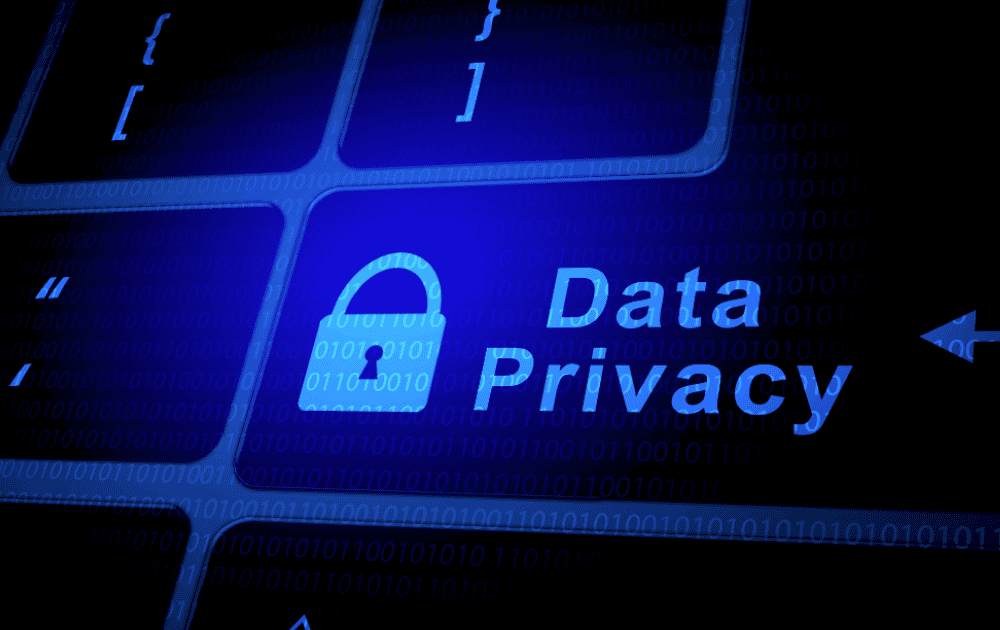Within the realm of data regulations, the interconnection between data regulations and access controls plays a critical role in safeguarding sensitive information. Understanding this link and recognizing the significance of access controls in upholding data regulations is paramount for organizations striving to maintain compliance and data security.
Understanding the Connection Between Data Regulations & Access Control
The connection between data regulations and access controls lies in the foundation of ensuring data privacy and protection, a crucial aspect of IT support. Access controls serve as the gatekeepers of sensitive data, determining who can access, modify, or delete information within an organization's systems. By aligning access controls with data regulations, organizations can establish a framework that governs the proper handling and sharing of data in accordance with legal requirements.
Importance of Access Controls in Data Regulations
Access controls are instrumental in upholding data privacy regulations by imposing restrictions on data access based on predefined rules and permissions. Through access controls, organizations can enforce data governance policies, restrict unauthorized access to confidential information, and track user interactions with data assets. By incorporating access controls into their data management practices, organizations can mitigate data breaches, ensure compliance with regulations, and foster a culture of data protection.
The table below illustrates the key aspects of the impact of access controls on data privacy regulations:
| Aspect | Impact of Access Controls |
| Data Protection | Safeguards sensitive information from unauthorized access |
| Compliance | Ensures adherence to data privacy regulations and industry standards |
| Risk Mitigation | Reduces the likelihood of data breaches and unauthorized data manipulation |
| Accountability | Enables traceability of data access and modifications for audit purposes |
| Transparency | Promotes visibility into data handling practices and permissions |
| Security | Enhances overall data security posture by controlling access to sensitive data |
Recognizing the integral role of access controls in data regulations, organizations can proactively fortify their data governance strategies, uphold compliance standards, and safeguard the confidentiality and integrity of their data assets.
Access Control Basics
In IT security and data protection, having a solid understanding of access controls is paramount for safeguarding sensitive information. This section delves into the fundamental aspects of access controls, covering the definition of access controls and the different types available for implementation.
Definition of Access Controls
Access controls are the systems and rules established to manage who is allowed to use, observe, or alter particular assets within an information technology environment. These controls are designed to ensure that only authorized users are granted entry to sensitive data, systems, or applications, thereby mitigating the risk of unauthorized access and potential data breaches.

Types of Access Controls
There are various types of access controls that organizations can deploy to manage and monitor user access effectively. These controls play a crucial role in upholding data privacy regulations and bolstering overall cybersecurity measures. Below are some common types of access controls:
| Type of Access Control | Description |
| Role-Based Access Control (RBAC) | Assigns permissions based on predefined roles within an organization. Users are granted access according to their job functions or responsibilities. |
| Discretionary Access Control (DAC) | Allows data owners to determine access rights and permissions for other users. Owners have flexibility in granting or revoking access. |
| Mandatory Access Control (MAC) | Enforces strict access policies based on data sensitivity levels. Access is determined by security labels assigned to data and users. |
| Attribute-Based Access Control (ABAC) | Considers multiple attributes, such as user roles, time, location, and environmental factors, to make access control decisions dynamically. |
| Rule-Based Access Control (RBAC) | Utilizes predefined rules or policies to dictate access permissions. Access is granted or denied based on specific conditions set by administrators. |
Understanding the nuances of each type of access control is vital for organizations, especially small and medium enterprises (SMEs) seeking to fortify their data security practices and adhere to stringent data privacy regulations. By implementing the right combination of access controls, SMEs can effectively manage user permissions, mitigate risks, and safeguard sensitive data from unauthorized access or compromise.
Influence on Data Privacy
In data privacy, understanding the interplay between data privacy regulations and access controls is paramount. By examining the overview of data privacy regulations and how access controls directly impact privacy, SMEs can navigate the complex landscape of safeguarding sensitive information effectively.
Data Privacy Regulations Overview
Data privacy regulations serve as the framework that governs how organizations collect, process, store, and share personal data. These regulations aim to protect individuals' privacy rights and impose obligations on businesses to handle data in a responsible and secure manner. Common data privacy regulations include the General Data Protection Regulation (GDPR), California Consumer Privacy Act (CCPA), and Health Insurance Portability and Accountability Act (HIPAA).
| Data Privacy Regulation | Scope | Key Features |
| GDPR | EU and EEA countries | Right to erasure, Data Protection Impact Assessments (DPIA) |
| CCPA | California, USA | Consumer data rights, Opt-out provisions |
| HIPAA | US healthcare industry | Protected health information (PHI) standards, Data encryption requirements |
How Access Controls Impact Privacy
Access controls play a pivotal role in safeguarding data privacy by regulating who can access, modify, or delete sensitive information within an organization's systems. These controls dictate the level of access granted to individuals based on their roles, responsibilities, and the principle of least privilege. By employing robust access controls, organizations can mitigate the risk of unauthorized access, data breaches, and privacy violations.
| Impact of Access Controls on Privacy | Description |
| Data Confidentiality | Access controls ensure that only authorized personnel can view confidential data, preserving its integrity and confidentiality. |
| Regulatory Compliance | By enforcing access controls, organizations can adhere to data privacy regulations by restricting access to sensitive information and tracking data usage. |
| Incident Response | Access controls facilitate swift identification and containment of data breaches or unauthorized access, bolstering incident response capabilities. |
| Trust and Reputation | Effective access controls instill trust among stakeholders and customers, showcasing a commitment to data privacy and security, which enhances the organization's reputation. |
Understanding the symbiotic relationship between data privacy regulations and access controls is essential for SMEs seeking to uphold data privacy standards and mitigate risks proactively. By aligning access control mechanisms with regulatory requirements, organizations can fortify their data protection strategies and foster a culture of compliance and accountability in an increasingly data-driven landscape.
Compliance and Security
In data regulations and access controls, achieving compliance and enhancing data security are paramount for organizations, especially SMEs seeking robust IT support and services. Let's explore how access controls play a pivotal role in both achieving compliance with data privacy regulations and enhancing overall data security.

Achieving Compliance with Access Controls
Compliance with data privacy regulations is a top priority for businesses of all sizes, including SMEs. Access controls serve as the gatekeepers that enable organizations to adhere to regulatory requirements and safeguard sensitive data effectively. By implementing access controls, organizations can control who has access to specific data and ensure that only authorized individuals can view or manipulate sensitive information.
To illustrate the importance of compliance in data protection, let's consider the following data breach statistics:
| Year | Number of Data Breaches | Total Records Exposed |
| 2020 | 1000 | 36 billion |
| 2021 | 1500 | 60 billion |
| 2022 | 1200 | 45 billion |
Aligning access controls with regulatory guidelines, SMEs can mitigate the risk of data breaches, fines, and reputational damage. Establishing clear access control policies, conducting regular audits, and implementing robust authentication measures are essential steps in achieving compliance with data privacy regulations.
Enhancing Data Security with Access Controls
Enhancing data security is a multifaceted process that involves implementing stringent access controls to protect confidential information from unauthorized access or cyber threats. Access controls not only regulate user permissions but also create barriers against potential security breaches, insider threats, and unauthorized data exposure.
To underscore the significance of data security, let's review the following cybersecurity statistics:
| Year | Number of Cyber Attacks | Cost of Cybercrime (in billions USD) |
| 2020 | 2000 | 1,000 |
| 2021 | 2500 | 1,500 |
| 2022 | 2200 | 1,200 |
In conclusion, access controls serve as indispensable tools in ensuring compliance with data privacy regulations and fortifying data security for SMEs navigating the complex landscape of IT governance and cybersecurity. By prioritizing compliance efforts and investing in robust security measures, organizations can uphold data protection standards, mitigate risks, and instill trust among customers and stakeholders in an increasingly digitized world.
Role of SMEs
For small and medium enterprises (SMEs), understanding the significance of access controls in data privacy regulations is paramount. Implementing effective access controls not only ensures compliance with data protection laws but also enhances data security measures within the organization.
Importance of Access Controls for SMEs
SMEs often handle sensitive data, including customer information, financial records, and intellectual property. As such, maintaining strict access controls is crucial to safeguarding this valuable data against unauthorized access and potential breaches.
Establishing access controls, SMEs can regulate who has permission to view, edit, or delete specific data within the organization. This helps in preventing data leaks, minimizing the risk of insider threats, and maintaining the confidentiality and integrity of sensitive information.

Implementing Access Controls Effectively
In implementing access controls, SMEs should consider the principle of least privilege, which entails granting individuals access only to the resources and data necessary for their roles. This practice reduces the likelihood of unauthorized access and limits the potential damage in case of a security incident.
Additionally, SMEs can leverage various access control mechanisms, such as role-based access control (RBAC), attribute-based access control (ABAC), and mandatory access control (MAC), to tailor access permissions according to specific requirements and organizational structure.
Unlock the Power of Your IT with LK Tech
Prioritizing the effective implementation of access controls allows SMEs to proactively protect sensitive data, build trust with stakeholders, and reduce the risks associated with data breaches and non-compliance. This approach not only strengthens data privacy but also enhances the overall resilience and success of the organization. At LK Tech, we offer top-notch IT support in Cincinnati, tailored to your unique needs, ensuring that your business remains secure and compliant. If you're looking for expert IT support, contact us today to see how we can help protect your business while fostering growth. Don't wait—get in touch with us to explore how our solutions can benefit you!


